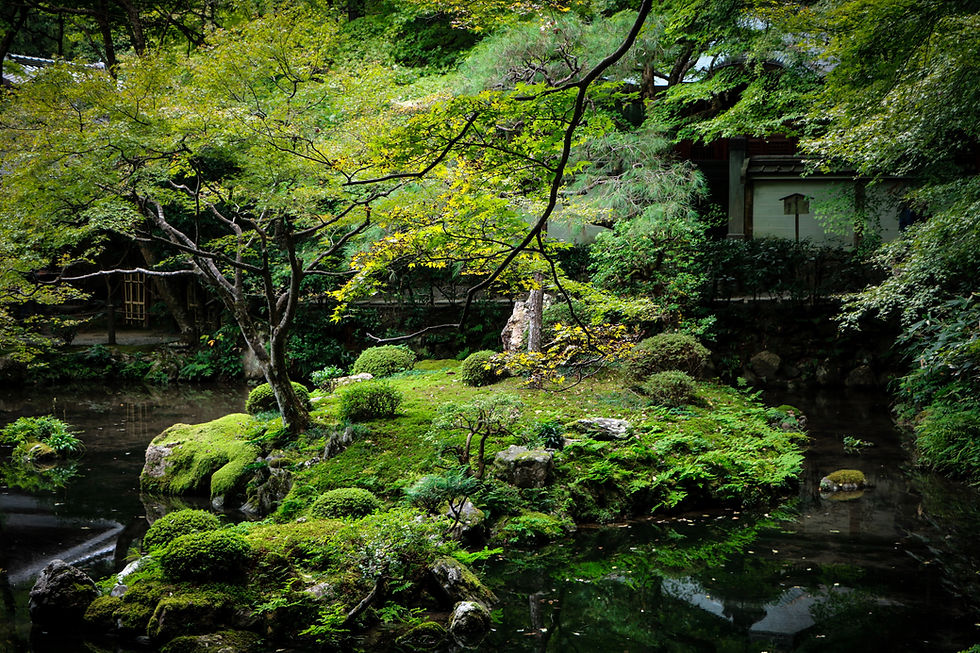Through My Bare Feet by Sharon LaCour
- Ariel's Dream

- Nov 5, 2022
- 3 min read
Updated: Nov 6, 2022

Photo by Utakaha on Unsplash
Through My Bare Feet
Creative Nonfiction
My family often visited a park on the Biloxi River in southern Mississippi not far from the Gulf beaches where the bluffs of the river are carved out of a deep maroon-colored and thick, sticky clay. The clay had an ancient smell. Over and over again, my cousins and I would make our way from one end of the bluff to the other, twenty feet above the river, hanging onto the roots of the trees that hung over the edge at the top.
We had scooped out a slide in the clay with our hands and added river water for a fast ride down the bluff. The slide was a narrow gulley or ditch, just wide enough for our bottoms. We would take turns sliding down the shiny slippery clay into the persistent current of the river. The current took us past a narrow stretch of green island where a rope had been attached to catch us before we were swept out to the rapids. We were left alone to fight our battles with the bluff, the current and the cottonmouth snakes that hung from the branches and shimmied away when we swam in the shade where the water pooled.
In the South you can go barefooted almost all year long, so I often see myself back then looking down at my bare feet. The lakefront in New Orleans is dominated by an eight-foot concrete seawall built in the 1930’s that goes on for miles. There are twelve steps leading down to Lake Pontchartrain, the last few of them covered with a phosphorescent green moss that swayed in the waves like a mermaid’s hair. The silky moss covered every square inch of those bottom steps, and don’t go past step eight, that moss is slippery as hell. The seawall was made of warm and nubby concrete rich with rocks, clamshells and glass. I’d rest on a dry step watching the mullets jump and waiting for the lake to splash me. On a hot day, it was heavenly, even if the water was warm. The moss would call to me and when my daddy was off pulling up a crab net or going to the ice chest, I’d step down closer to the bottom to feel that moss under my feet.
The seawall extended as far as I could see to the yacht club and the New Canal Lighthouse where my Great-uncle Bee had been a lighthouse keeper. On Fridays we’d drive past the lighthouse and the New Basin Canal to Bucktown, an old fishing village known before my time for its gambling, jazz and liquor-driven fights. We went there to buy boiled seafood, crabs mostly.
The seafood place was hidden in a grove of huge oak trees not far from the lakeshore. You could see the lake and the silver line of the causeway that led to the Northshore. My daddy would drink a beer, smoke a Camel and laugh with the other customers while I explored. The place smelled like lake water mixed with an earth-smell, like good, rich dirt, Spanish moss and damp stone. I felt sad for the huge, lonely alligator they kept in a cage off in a dark, shaded corner and thought he might be dead because I never saw him move. I’d squat and stare at his nostrils flaring in and out to make sure he was still alive. The baby soft-shelled crabs were also tragic. They sat, dozens of them, in a table-flat tank of moving water waiting to be sold to restaurants where they would be deep-fried and eaten, whole.
This place was magical for me and where I first experienced the notion that there was more to this world than what can be seen with the human eye.
It’s a sensation I’ve had only in the South, that blend of joy and sadness that seems to seep up out of the soil. There are mysteries preserved in the elements all over the earth, but for me, they are closer to the surface in the South. All that living settles in the dirt and stays there. You can feel it through your bare feet.
A longer version of this story titled “A Chorus of Cicadas” was published by Sheepshead Review, May 2021.
The Author
Sharon LaCour grew up in the Deep South where most of her writing takes place. Her stories and essays are published in a variety of journals including the Arkansas, Xavier, Sheepshead and Blue Lake Reviews. She is working on an historical fiction novel set in Cajun Louisiana. She currently lives in the Upper Midwest where she works as a pianist and tries to keep warm.







Comments